MAINE MUSIC EDUCATORS



AMPLIFY IS AN EXCLUSIVE ONLINE SOCIAL NETWORK JUST FOR NAfME MEMBERS.

• Discuss and Share – Younger educators can find ideas and share what they have learned. Experienced educators can mentor colleagues new to the profession. Plus, download resources relevant to your career—all in one platform.
• Network with Educators – Wherever you are, you can reach out to colleagues in other states and countries. Search a directory of your fellow 60,000 members.
• Go to community.nafme.org.
• Edit your profile using your NAfME.org member username and personal password.
• Control what is visible on your profile.
• Join/subscribe to communities of your choice – you will automatically be enrolled in Music Educator Central.
• Control the frequency and format of email notifications from Amplify.
Visit Amplify’s FAQ section: bit.ly/AmplifyFAQ (case-sensitive).
Reach Member Services at: 800-336-3768 or memberservices@nafme.org.
Bookmark Amplify on your browser: community.nafme.org
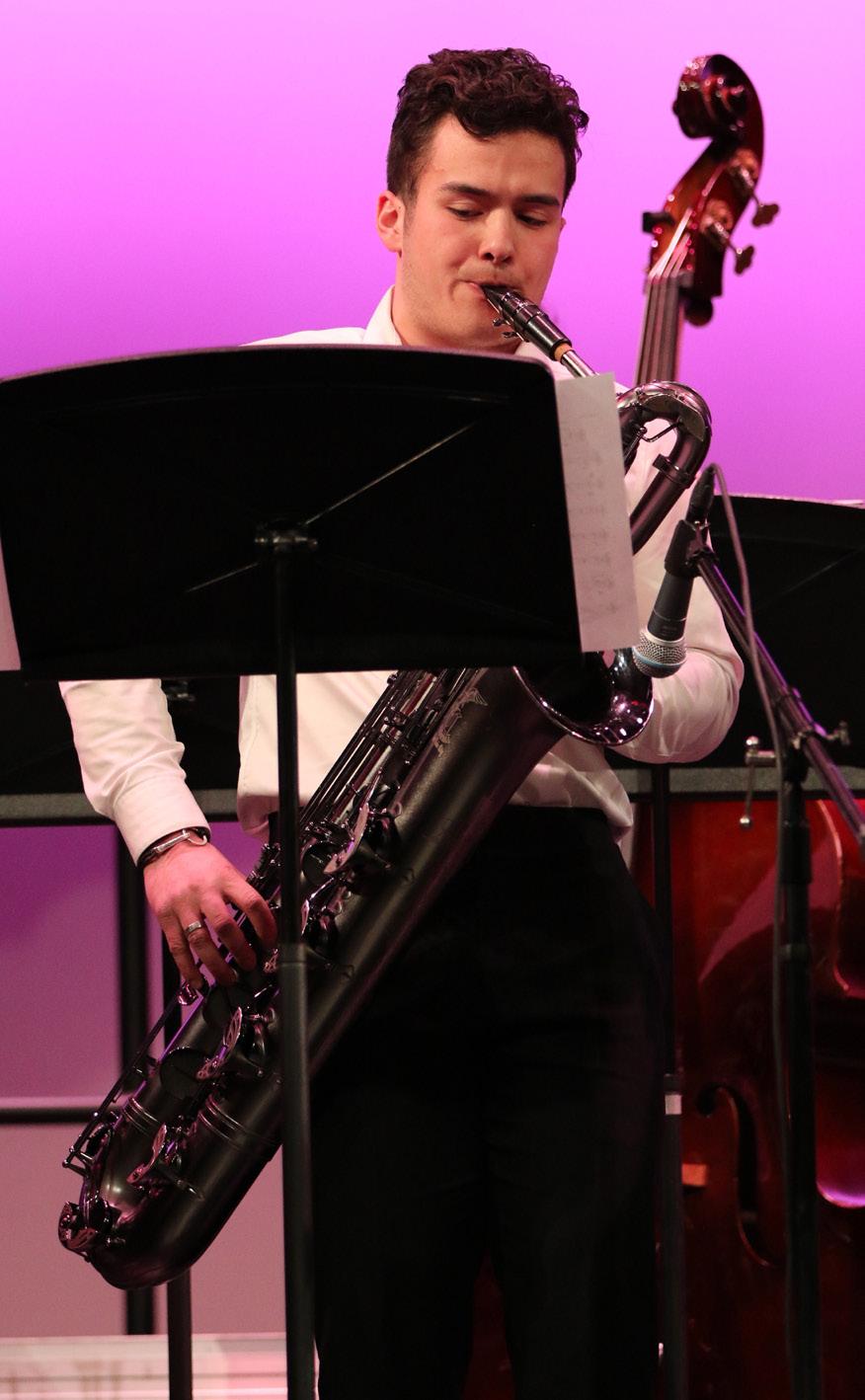
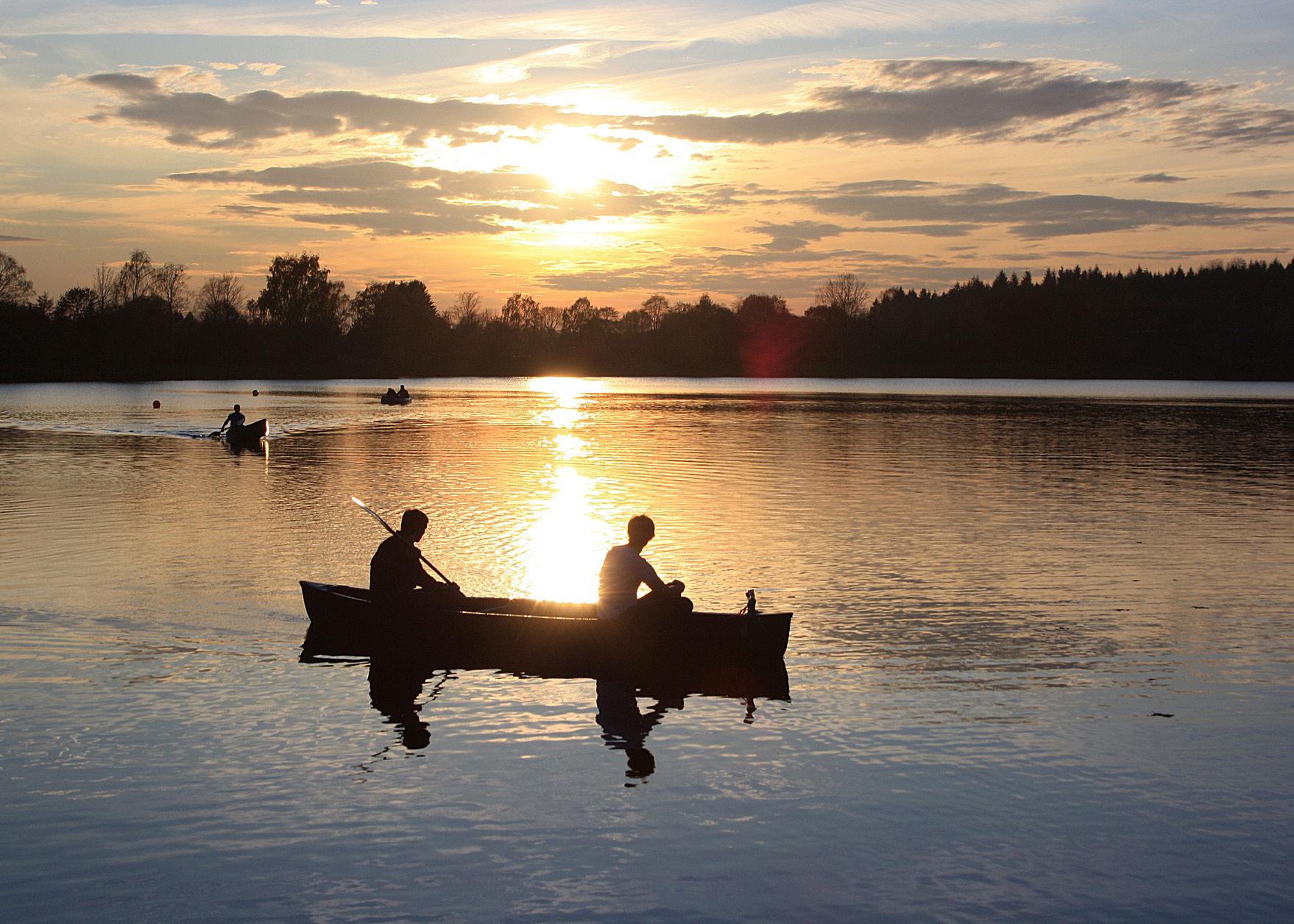

President Andy Forster president@mainemea.org
President-Elect Matt Waite presidentelect@mainemea.org
Past-President Sandy Barry pastpresident@mainemea.org
Executive Director Beth LaBrie execdirector@mainemea.org
Secretary Cassie Cooper
Treasurer Sarah Bailey
G. Music K-5 VP Caitlin Geishaker
G. Music 6-12 VP Kayla Peard
Orchestra VP Andria Bacon
Band VP Sarah Dow-Shedlarski
Choral VP Dr. Christian Giddings
Jazz VP George Redman
D1 Chair Eric Halpin-Desmaris
D2 Chair Erika Batalla Gates
D3 Chair Brandon Duras
MMEA Executive Director Office Hours:
Beth LaBrie will be providing Office Hours each week when she will be readily available by phone or email:
Email: execdirector@mainemea.org
Phone: 207-754-5426
Hours: Monday 8:00-10:00 a.m. & Wednesday 11:00-1:00 p.m. Evening appointments during the week are also available.
Every effort will be made to reply to communications within 24 hours of weekly business hours (Mon–Fri).
D4 Chair Kris Vigue
D5 Chair Danielle Collins
D6 Chair Jamie Calandro
D7 Chair Jon Simonoff
DEIA Nathaniel Menifield
Music Teacher Education Dr. Philip Edelman
Tri-M Honors Society OPEN
Advocacy Heidi Corliss
Retired Teachers Nora Krainis
MMEA Historian Sam Moore-Young
Teacher Mentor Erin Morrison
Collegiate Advisory Council Dr. Rebecca Dewan
MIOSM Savannah Wright
Webmaster Adam Metzler
Editor Hanna Flewelling
Social Media Hanna Flewelling
Conference Bill Buzza
Conference Registrar Jon Simonoff
Jazz Conference Assistant OPEN
BOC All-State Festival Kristen Thomas
Jazz All-State Festival OPEN
All-State Auditions David Morris
Instrumental Jazz Jason Priest
Vocal Jazz OPEN
Solo & Ensemble OPEN
BOC All-State SSAA Chorus Colin Graebert and Julia Edwards
BOC All-State SATB Chorus Ashley Albert
BOC All-State Orchestra Ben David Richmond
BOC All-State Band Kyle Smith
Jazz All-State Honors Jazz Craig Skeffington
Jazz All-State Jazz Band Craig Ouellette
Jazz All-State Combo Jason Priest
Jazz All-State SSAA Chorus Wendy Northrup
Jazz All-State SATB Chorus Ciara Hargrove
Fall 2023
Volume 8, No. 1
The official publication of the Maine Music Educator’s Association
Maine Music Educators Association (MMEA)
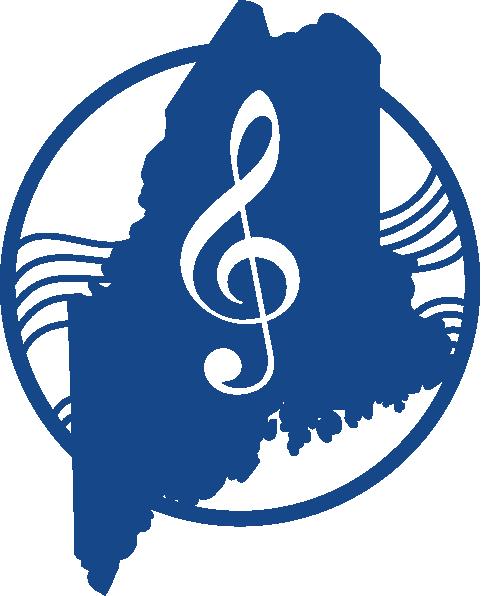

235+ members including working music educators, retired teachers, and collegiate students
Formally founded in 1917, MMEA is the oldest recognized state music educator association in the USA.
Mission Statement:
Mission: To advance, advocate for, and expand access to music education in Maine.
Vision: Advancing music education for all.
All editorial materials should be sent to: Hanna Flewelling, Editor
Email: editor@mainemea.org
Submit materials for publication HERE
All advertising information and orders should be sent to: Beth Labrie, Executive Director
Email: execdirector@mainemea.org
On behalf of MMEA, I would like to welcome you all to another amazing year of music education in Maine! As we closed out the year last June, Matt Waite, Beth LaBrie, Heidi Corliss, Sue Barre, and I packed our bags to attend the NAfME National Leadership Assembly in Reston, VA, and NAfME Hill Day in DC. Working alongside the leadership teams from across the country and Europe, we spent five days in sessions designed around NAfME’s strategic plan and initiatives. These topics included “NAfME’s Keystone of Equity in Music Education,” the “Music Teacher Profession Initiative- A Blueprint for the Future,” “Navigating Divisive Concept Laws, Navigating LGBTQ+ Identities,” the “NAfME Small Schools Initiative,” and more.

On the second day of our trip, we were part of more than two hundred music educators who descended on the Capitol to lobby our Representatives and Senators on the need for financial support for Music Education. Our voices were united, with MEAs from across the country asking for more support for the arts. Although our meetings mainly were with staffers, Representative Pingree left the ongoing session in the House to spend a few moments with us in her office before returning to the floor. Her words of support were a direct result of the tireless work that all of you do daily across our great state.
During our time in DC, we visited the US Marine Barracks and witnessed their Friday evening ceremony featuring the Marine Band, the Drum & Bugle Corps, and the Silent Rifle Drill Team. We were in awe of being able to see such an impactful ceremony. I finally got to visit the monuments at night. I was seven years old the last time I was at the mall. Words can’t describe the feelings and emotions that ran through me. I did manage to break a personal record for the number of steps in one day, though. I believe it was just over 23,000.
Around twenty-five MMEA Board members attended a one-day summer retreat in Oakland at the end of July. Topics discussed included: How can MMEA best serve PK-8 general music teachers and students, scenarios where you want to know if you are covered by copyright law, audition repertoire review, creating a Who’s Who/Hall of Fame, re-imagining a state solo & ensemble/large group festival, and fundraising ideas for MMEA. Nate Menifield, DEIA Chair, and his newly formed committee spent the day laying the groundwork for what will be the role of the DEIA Committee as we move forward as an organization. Thank you, committee members Catherine Newell, Sarah Cousins, Ben Richmond, and Marisa Weinstein.
As many of you have noticed, we began moving toward gradually raising our fees for all our events. Although none of us want to see higher costs, we know that we are required to be fiscally responsible, and these increases will get us back from the significant losses we suffered during the pandemic years. This year, we will begin an effort to seek corporate sponsorships for our Jazz and BOC ensembles. Additionally, we will solicit private and business entities who wish to be sponsors at one of several levels of financial support. We hope that through these efforts, we can slow the need to raise the fees for conducting our business.
David Morris, our new Auditions Chair, has spent the summer working with the DaCapo audition plat-



We are in the midst of federal appropriations season for fiscal year 2024, and there's no better time to advocate for music education! Visit bit.ly/SupportMusicEdFY24 or use the QR code below to send a letter to your federal elected officials today—takes less than 2 minutes!

form, a system created by a music teacher and used throughout New York. This new platform replaces Submittable, yielding more than $ 5,000 in savings. Thank you, David. We look forward to piloting this system in Maine this year. Our Teacher Mentor Chair, Erin Morrison, has a large list of teachers who wish to mentor a teacher who is new or new to their content. Our new Advocacy Chair, Heidi Corliss, has begun work that will help highlight music education in our state. Savannah Wright is our new Music In Our Schools Month Chair, so look for her emails advocating for NAfME’s MIOSM theme for 2024. Hanna Flewelling, our Editor and Social Media Chair, continues to produce incredible, professional-looking documents for our association. Please reach out to these Chairs if you have ideas, questions, or stories of success that you can share.
I am thrilled to be in the presence of such a wonderful and inspiring group of music educators in our state. In the past two days, I have sent out information for four different professional development opportunities this fall for music teachers across our state. These are highly beneficial programs created for you by your peers. That is just outstanding!
In closing, MMEA’s Vision, “Advancing Music Education for All,” has never been more important than it is today in a post-pandemic world. I look forward to watching all the fantastic things you do for your students. Thank you for being such a positive influence while changing the world, one musician at a time.
Sincerely,
Andy Forster MMEA President president@mainemea.orgWITH SCHOOL IN full swing, I thought it would be nice to reminisce about the wonderful summer camps that feature Strings in Maine.
Maine Summer Youth Music has provided an immersive music experience for hundreds of young campers on the beautiful University of Maine campus for over half a century. Campers learn from professionals from the UMaine community and around the country, all bringing a wide array of skills and experiences. Activities include performances by faculty, students, and others and fun recreational activities. MSYM runs for one week during July.
www.umaine.edu/spa/msym
Maine Fiddle Camp is a multi-generational traditional music camp in Central Maine. Not just for fiddles, MFC offers instruction in at least 14 instruments plus voice. Instructors emphasize learning and playing by ear. All ages and levels are welcome-from skilled players to

people who have never played before. Besides instrument workshops, there are opportunities to perform, sing around the campfire, and “form a band.” There are jam sessions, variety shows, old-time country dances, and traditional camp activities like swimming and games for the kids. Maine Fiddle Camp runs a number of weeks during June and August.
www.mainefiddlecamp.org
For over 50 years, Southern Maine String Camp has been a place where students and music educators come together with a common focus on our mission: an opportunity for young string players to grow as musicians in a non-competitive environment while enjoying the classic Maine summer camp experience. Campers ranging from beginner to advanced gain orchestral and chamber music experience under the lush cover of 50-foot pines. SMSC’s home at the YMCA Camp of Maine offers access to a serene waterfront, sprawling fields, rustic and cozy cabins, and everything else you think of when
you hear “summer camp.” With talented and passionate staff from all over New England and our dream-scape of Maine camp nostalgia, it’s no wonder campers come back year after year. Registration opens on November 1st, and camp runs for one week in August.
www.southernmainestringcamp.org
The Ossipee Valley String Camp is an 8-day immersive experience (5 days of camp, including a pass to the music festival) with some of the brightest professional teachers of bluegrass and roots music around. The camp is in Hiram, Maine, and runs prior to the Ossipee Valley Music Festival. A ticket to the camp includes four classes per day, three meals using farm-to-table ingredients, daily yoga, and evening fun, such as the variety show, circle jams, and dances. Camp is for all ages 13+, and most instruments offer classes at multiple levels of speed and complexity, so there is something for everyone. The Ossipee Valley String Camp runs for one week during July.
https://ossipeevalley.com/string-camp/ n
Iam so excited to be your new Vice President of General Music 6–12! While my background has primarily been in band and some K–5 general music, I have always loved the general music classes I teach at the high school level. The general music class at the middle and high school levels allows us to connect with students we might not see in our traditional ensembles. Whether it is guitar, piano, music technology, music theory, music history or appreciation, electric guitar building, etc., these classes enable us to reach students who might have never entered our class-
rooms otherwise.
When looking ahead to the Spring conference, I am excited to pick engaging sessions that will also help you right away. Please send me suggestions of what YOU want
to see at the conference. Is traditional guitar or piano something you need more knowledge about? Or would you like to create a music technology lab and class? Or a digital composition class using Soundtrap? These are my ideas for sessions, but what will help you?

The term General Music at the secondary level has many interpretations. Our job is to find an interpretation that allows us to reach our students in our buildings. Please reach out to me with any questions or thoughts you have. I am excited to help make this the best conference it can be! n
NAfME is a collaborative community that supports music educators and advocates for equitable access to music education.
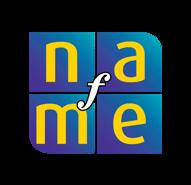
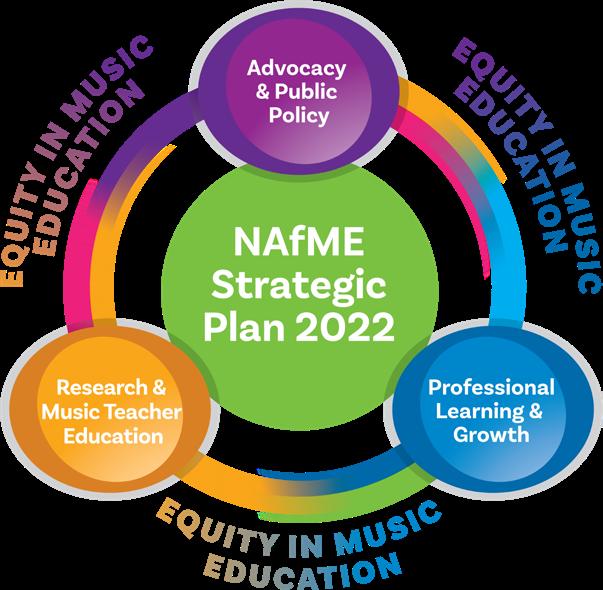
NAfME is an association where all people are heard, seen, and feel they belong throughout their lifelong experiences in music.
Read the full Strategic Plan at bit.ly/StrategicPlanNAfME
 By John Neal
By John Neal
Over my forty-plus years of teaching high school music in Maine, I was privileged to know a number of truly outstanding people in the profession, one of whom was unquestionably Norm Richardson. When I arrived at Edward Little HS in Auburn, fresh out of graduate school and in my late twenties, Norm was well-established as the band director at South Portland HS; he ultimately retired from teaching at Cape Elizabeth HS after a long career of leading winning concert, marching and jazz bands.
It is no exaggeration to note that Norm could walk into any high school study hall at any time, select seventeen random kids, and two years later take them to Boston and win the Berklee Jazz Festival with them. A supremely gifted musician and jazz educator, he was kind enough to “take me under his wing” as a young teacher, and I will forever be grateful for his wisdom and direction.
But it always struck me as hilarious that, as accomplished as Norm was, if he had a point to make at a meeting of music educators (District, MBDA, Allstate
All-Member meeting, etc.), he would often preface his remarks by saying, “Now that I’m on the downside of a mediocre career…” and then he would make his point!
I never forgot that, and now that I am on the downside of my own mediocre career (having retired last June), I thought it might be helpful to pass along to you some insights I have accumulated over the years in the hope that it might be beneficial to those of you still
“in the trenches.” And so there follows a collection of personal and professional ideas for your consideration that I wish someone had told me back in the day. I hope it helps!
The first thing I wish I had known is that you can either work to live or live to work— in music education, it is extremely easy to do the latter. I confess that there was a time in my life when, if you had asked me who I truly was, down in my deepest soul of souls, I would have told you that I was—at the very core of my being—the band director at ELHS. I now view that as being sick. I only started to come around when my eldest daughter, then just a toddler, put her first sentence together: “Daddy works.”
Your job is just that, your job— one of many “hats” you wear, all of which combine to define who you are as a person. The problem for music educators is two-fold. 1) We tend to define ourselves by our accomplishments as a teacher. 2) We come to care so much for “our kids” that we lose our boundaries in our quest to be of service to them (more on boundaries later!).
I remember being astonished when the new band director arrived to helm the program at my graduate school and discovering that he was the only person in recent memory to win a national high school band championship and remain married to the same person. Apparently, to win a national championship, you must be married to your job rather than your spouse? I don’t accept that!
If you look at this rationally, you will readily concede that to define yourself by the actions and accomplishments of children or super-hormonal teenagers is foolish. But that’s precisely what we do! And if our last concert is, to our ears, sub-par, we own that! It doesn’t matter if there were six snow days in the month before the event, doesn’t matter that your best players/singers got mono last week, doesn’t matter that the administration scheduled a rally or fire drill during your last rehearsal, doesn’t matter that your group only meets at lunch or recess—we will blame ourselves if the kids come up short against our (probably inflated) expectations! And I’m not saying that we should aim low or stop challenging the kids to get better. I’m just saying that if you did your best and earned your pay every day within the constraints in which you have to work, then learn from the concert result (whatever it is) and then let it go!
It is also foolish for us (although I did it myself for many years) to look at the best programs in the state and feel bad that our students can’t do that. Those topshelf programs do us all a service by demonstrating what is possible when all the stars align, a capable teacher meets a sufficient budget, a supportive schedule, enthusiastic parents, and an administration that embraces a vision of musical excellence K-12. But remember, all those pieces need to be in place, or else it’s just not going to happen! Certainly, we want to build that kind of structure wher-
ever we are working, but if the money (or the budget, the schedule, or the support) isn’t there, then there’s only so much we can do. So don’t own that which is not within your control!
Furthermore, Maine music educators comprise the most wonderful human beings on the planet, going out of their way daily (both in the school and the community) to try to ease the pain inherent in the human condition whenever and however they can. I am confident that you are no different. And so when you see a kid in trouble, whatever that trouble looks like, your immediate instinct is to try and help. And this is, of course, noble, but let’s think about that for a minute!
One of the best teachers I know is a science teacher, a guy routinely asked to travel to America and present workshops on science pedagogy to colleagues nationwide. His teaching credentials are impeccable—yet if a kid were to come to him and share a personal problem or issue, his response would always be, “Do you want me to call the guidance office for you?” He NEVER counsels a student, feeling like that’s not his job—HIS job is to teach science. Moreover, he correctly acknowledges that he does not have the training to provide professional counseling. This means he is not spending a few hours or more after school daily, away from his spouse and family, talking with kids. And I certainly see his point.
I have always struggled with this question: what is the most important word in the phrase “music education”? Is it the music? Or is it the education? I have done
it for four decades and still don’t know the answer. What I do know is that kid would not have asked me for help with a personal problem if s/he didn’t feel a connection with me and think I might have a solution. And so I feel I need to honor that connection and engage with that student to the degree I can. And there is my point: make such students feel heard, offer what insight is possible given your background (or lack thereof), help that kid get from wherever they are to graduation, and always make your family your priority.
I also find it easier to do this when I remember that if it’s not worth paying for, it’s not worth doing. Your school year is filled with opportunities to do more without compensation. And often, this is something we do to ourselves, even though ours is already the most underpaid profession in America! So I would first say that if you’re not receiving a stipend to do concerts in the evening, to bring your group to basketball games or exchange concerts, to take your kids to festivals on Saturdays (etc.), then you need to address this with your administrator and union, and if the stipend is not forthcoming, stop doing it! I know, “it’s for the kids,” but nobody will ever pay you for something you’re willing to do for free, and while you’re doing it, your significant others are doing it without you. But if your students go without, and their parents complain that kids in the next town are getting opportunities in music that their kids are not, then the stipend will be forthcoming. If they’re not willing to pay you for doing it, it must not be worth doing, so don’t do it! n
Nobody will ever pay you for something you’re willing to do for free.
Iteach in a small rural school in Aroostook County. My kids are awesome, but there is one major problem…there’s not enough of them! My high school has around 70 students in the entire
building. My students want and deserve great musical opportunities, but finding the numbers to make things feasible (and fun!) can be a struggle. What we have started to do for the past 4 or 5 years is to combine forces with other schools in some situations. This is not a new concept. In fact, it’s allowed by the jazz festival bylaws to have
“super groups” if one school does not have the population to support a program.
It’s easy to feel like your school is its own island and forget that other schools are working through the same things. By conversing with a nearby school, you may get some great kids from both buildings, get those kids in front of two teachers, and have an enriching experience for all those involved.
In my situation, I combined with another school to form a jazz band. We performed at each other’s spring concerts and did the district festival one time for comments. It has been a great experience for both schools and something my students look forward to. n

In the first installment of “The View from….” we visited with our colleagues from District 7. Taking advantage of proximity and short commutes, I headed to the most southern area of Maine, District 1. What is it like to work and live here? What challenges do they face? What do the educators of District 1 want others to know about this place? We continue this series with The View From Southern Maine, a conversation from Spring 2023 with Missy Shabo, Immediate-Past District 1 Chair.
Full disclosure—I have been fortunate to work with Missy Shabo and her guest, Caitlin Ramsey, in many instances and for many years. I welcomed them to our home for a Sunday brunch and to lure them into spilling the beans on all things District 1 in this hard-hitting expose.
How would you describe your District–geography, school make-up, communities, etc.?
CR: Cape Elizabeth is socio-economically quite diverse. MS: There are significant differences in school and program size,
general supports, job descriptions, and funding, from schools that are even within 10 miles of each other.
Missy described her experiences progressing from school system to school system–parents and the community hold expectations about how education/music programs “are” vs. what they can be from the teacher’s perspective. As motivated and informed educators, Missy and Caitlin have worked in multiple systems that did not have much time, funding, or support. They each have a strong vision of what it takes to create and maintain a strong music program. They shared that recruiting and advocating for the kids’ musical education experience is a constant job.
CR: PR (public relations) is a big part of the job and should not be left up to chance. You need to tell the story you want people to know. People will share their opinions about what is happening. What story do you want them to tell?
Even before the pandemic, Maine was beginning to experience significant changes in edu-

cation. What particular changes affected your District the most? How did your District address these challenges?
CR: Scheduling is the biggest factor, always and forever. Many areas face challenges; population decline, smaller families, and a tight housing market create challenges in schools. Further inland in Southern Maine, there are challenges of population growth. Significant demographic changes in the bigger systems cause strains on limited resources.
MS: We are seeing more need for interventions for kids—not just academic but behavioral, functional, and emotional.
Speaking of the pandemic, describe how your District weathered this crisis. What was lost? What lessons were learned? What is it like today?
CR: The experience was so varied, even within the same District. Administrations set priorities. Music classes were outside, some fully online, and teachers were assigned to teach other subjects. Some teachers were left entirely up to themselves as to what they
could do and provide. High schools are seeing the impact and will for several years. High schools need to pivot to meet the needs of the students they have now, who, in many ways, share similarities with middle schoolers. MS: No other subject suffered as much as music ensemble classes. Classes that had to work and learn together couldn’t do that for a year and a half. Now they don’t know how to be together as a group in the same room.
Missy described how she felt her whole professional life was canceled, but during that summer, she dove into professional development.
Caitlin’s administrator asked how she wanted to “do this” and included her in planning “how to do band.” She chose online classes so she could see her students regularly and was allowed to teach her subject.
During COVID, Caitlin and Missy taught in different districts but worked to collaborate with each other and other teachers in the state (Maine Middle School Band Directors Group on Facebook). There were frequent Zooms, online professional development sessions, and myriad conversations. Because of this effort, Missy brought to her administration the idea of deliberately scheduling band online. Missy could also share information and facts with school leaders that enabled her to access ESSER funding and address the learning loss experienced at the time. For Caitlin, who also taught beginners, there was an enormous amount of planning, experimentation, and effort centered around the beginning band and how to teach first-year students instruments online. This article cannot fully encompass the methods Caitlin successfully employed to start begin-
ners via online learning, but you can read about some of the process here: https://cemsband.weebly.com/2022mmea-clinic-info.html
The first year back wasn’t normal, as we know. Masks, bell covers, distance, spacing, and tents, in some cases, had to be incorporated into budgets and procedures. There were vastly different schedules than previous times, and much learning to do what was once so well known before so very differently.
CR: The value of music has had to be retaught to communities. What is the importance and need for music education? For example, what is a jazz band? (hint: donuts help). Kids weren’t exposed to all they had been before the pandemic. Concerts, honors festivals, jazz groups–all of these events were “new.” Teaching in person again required addressing what had been forgotten. Skills and routines had to be rebuilt, and my teaching needed to change. Reconfiguring rehearsal and concert spaces created many layers of complication.
More was required to support student success, and communicating essential details to parents was critical. There needed to be a Plan A, B, and C for every event. We are dependent on having kids in our program to have a program. No other subject at the middle school level depends on kids signing up for their class. The pandemic tested music teachers on every level.
MS: Having a colleague to work with daily who teaches the same thing as you and can talk to and problem-solve with is a game changer. There is someone to collaborate with all the time.
CR: Sharing the common load
makes the work sustainable, makes us both better educators, and allows us to do more at school and home.
MS: You can breathe. I’m a better teacher because I have someone to plan things with and through. I think everybody should have that.
CR: Unfortunately, in our state, many districts don’t set up their music programs with the scheduling and staffing needed to be successful. Most other subjects have a clear curriculum mapped across the grade levels. With specialty subjects like music, it’s easier for curricula to be disjointed without a cohesive district-wide approach or structure. Collaboration can be difficult, with variable job descriptions, challenging schedules, large geographic areas, and no curricular oversight.
MS: In Maine, we’re lucky to have one other person teaching music in our building.
What would you like your colleagues in the rest of Maine to know about your District that they might not know?
What are your hopes for the future of your District? For the future of music education?
MS: D1 has big challenges geographically, socio-economically and program-wise. District 1, while the biggest population-wise, does not consist of all “big programs.” There are many small schools. Common to much of Maine, many people have jobs that span many grades and varying content areas. District I saw 32 new educators in 2023, illustrating the fast pace of change. This resulted in considerable work to support all new teachers, get people involved, and re-involved with District 1 work and jobs. The work continues.
CR: I would like to see teachers using each other more as a support system rather than a comparison. Mentoring would be a great thing to see expanded. Having FACTS is the only way to talk with administrators about increasing music
Recruiting and advocating for the kids’ musical education experience is a constant job.
the view from... offerings/improving scheduling. The more we share from District to District, the better. I would also love to see a more collaborative relationship between local colleges and school music programs in our area. We can all help lift each other up to keep improving our state’s music education quality.
MS: It’s great to see new people getting involved in District activities, and some of those newer teachers are bringing their colleagues to the table. We need more of that to reflect our changing District. As of the Spring of 2023, District 1 is scheduled for the year with hosts, managers, and most board positions filled.
MS/CR both share the same goal as educators: to always try to improve as teachers–to open the door to self-improvement and to see more professional collaborative opportunities.
Each district’s music program has different strengths and obstacles. While celebrating and acknowledging what is good, there is also room for supporting others. Missy and Caitlin are working to create a network where people feel comfortable asking questions without judgment. There is growth in going to things like the Midwest Clinic and realizing, “holy cow, I don’t know anything.” A tighter community of music educators with cross-curricular experiences and goals reaps benefits for teachers and students alike.
Caitlin Ramsey and Missy Shabo encourage us all to get involved. The effort benefits students, and active involvement provides leadership experience and a greater understanding of the larger picture in our music community: making connections and forming peer networks. Get involved. Do what you can do. For example, if

your school facility cannot accommodate a district event or you feel you have no specific skills to act as district treasurer, find a position or task you can perform. Be part of the solution. We all benefit in the end.
Missy Shabo is currently in her 15th year teaching. She started her career in Sacopee Valley, moved to Bonny Eagle Middle School, then Scarborough Middle School, and is now co-director of bands at Cape Elizabeth Middle School. This new position results from years of advocacy by Caitlin Ramsey. The two cross-teach 5–8 instrumental music and two jazz bands. Missy lives in Old Orchard Beach, where she was born and raised, the daughter of long-time Loranger MS band director George Shabo. Missy remembers wanting to follow in his footsteps and
be the band director in Old Orchard. George, retired, now subs for his daughter. “Papa Shabo” is loved by the Cape Elizabeth kids, who frequently request him. Missy shares her home with her nine-year-old yellow lab, Papi, and a puppy, Tatum. Missy Shabo is now the Past D1 Chair, the band manager for the 7/8 Festival, and Treasurer for the 6th North Festival. She holds a bachelor’s and master’s in Music Education and a Certificate of Advanced Study in Educational Leadership, all from the University of Southern Maine. Missy is the Director of all USM Summer Band Camps: Youth Band Day Camp, Southern Maine Junior Music Academy, and Southern Maine Music Academy.
Caitlin Ramsey, originally of Smithfield, Maine, attended Skowhegan HS, graduated from Miami University with a BA in
Music Performance and Music Education, and earned a Master’s in Education from Kent State University. The 2022–2023 school year marked her 19th year teaching, all in Maine. She began her career in Chelsea (K–8 classroom music, chorus, band, and musical theater), followed by Sanford, Massabesic, and Cape Elizabeth. Caitlin serves in several District 1 capacities, including Secretary (now Past) and Coordinator for the 7/8 and 6th Grade North festivals. Outside of District 1, she is the NAfME Band Council Eastern Division Representative, frequent presenter/clinician, and guest conductor. During the pandemic, Caitlin created the Maine Middle School Band Directors Group, a lifeline of resources, support, and humor for educators statewide. Caitlin is married to Tim Ebersold, Scarborough HS band director. They live in Portland and have recently welcomed a
new family member, Ruckus, an adorable pup.
Caitlin and Missy have known each other for years and worked together in various capacities. 2023 marked the first year working in the same school district, however. They are still figuring out how to work with each other as colleagues, taking on essential topics such as desk tidiness, salad dressing spillage, and how often one should clean their coffee mug. When not tripping over items in their shared office, they belong to the same book group, currently focusing on the Royal Family. The inaugural Maine Middle School Band Directors Fall Conference was an early success in their collaborative efforts held in October 2022 at CEMS. Missy and Caitlin welcomed 72 band directors across Maine for a full day of professional development in 2022. The conference is returning this year on October 6th. n
Board terms are for two years, with the option to run and hold a 2nd two-year term.
The MMEA Board is a dynamic group of educators who care about Music, care about Students and care about You! MMEA seeks nominees for the following Board positions for terms commencing on June 1, 2024:
MMEA President-Elect General Music PK-5 Band VP Jazz VP TreasurerThe position of President-Elect is held for 6 years–two years as President-Elect, 2 years as President, and 2 years as Past President. This provides the opportunity to observe and learn about the position while working on important MMEA projects, leading the organization that represents all music educators of Maine, and supporting a positive transition for incoming leadership.
The nomination process is easy–for information and the Nomination Form: MMEA Election Policy & Timeline (rev. May 2023)

Additionally, Districts 2, 4 and 6 will hold their own elections for Chair and other positions.
MMEA provides numerous opportunities for students as well as outstanding professional development for educators throughout the year. Think of your talented colleague–and yourself–and get involved with the organization that champions music education across Maine!
“The process of preparing music educators to meet the needs of a nation with rich diverse needs, cultures, and resources embodies the challenges colleges and universities must recognize to improve candidate readiness to enter and thrive in any community.”
—A Blueprint for Strengthening the Music Teacher Profession, June 2023
NAfME formed the Music Teacher Profession Initiative in 2021 to identify barriers to equity in music teacher recruitment, education, and retention. A task force of NAfME leaders representing institutions of higher education across the country conducted research related to the challenges facing high school students as they make the decision to pursue a career in music education, preservice music educators in their undergraduate degree programs, and novice music educators in their first five years in the profession.
The project was executed with the perspective of widening the path to the profession by cultivating and strengthening more inclusive and equitable processes in recruiting, teaching, and nurturing a robust music teacher workforce. A Blueprint for Strengthening the Music Teacher Profession (released in June 2023) describes the task force’s process, outcomes, and recommendations for action. The report reveals the deeply complex nature of tackling evolution in music teaching and learning. The issues addressed are not easily remedied. We call on educators and administrators who have a vested interest in music teaching and learning to take an active role in moving our culture forward in ways that are inspiring, inviting, and inclusive.
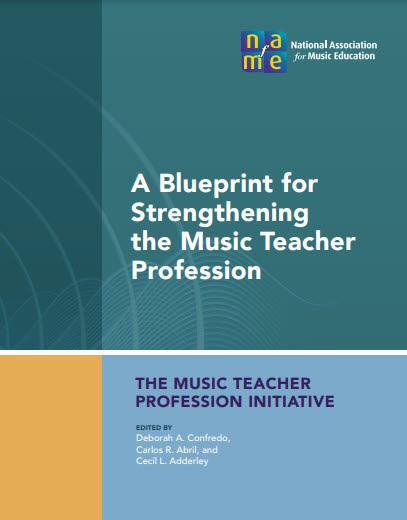
https://bit.ly/NAfMEMTPI
DURING THE DEGREE PROGRAM
DURING THE FIRST 5 YEARS OF PROFESSIONAL LIFE
Challenge
Solution
Inequitable distribution of funding, physical resources, and human resources
Federal policymakers should increase funding for Titles I and IV-A of the Every Student Succeeds Act to ensure students have equitable access to a well-rounded education that that includes music.
Challenge Solution
Participation, transportation, and private instruction expenses
School districts should offer free or highly subsidized rental programs and private lessons for students from low-income families.
Challenge Solution
Persistent inequities in how students are recruited, auditioned, and enrolled
Higher education should expand audition/interview requirements to be more inclusive of diverse ways of being musical and demonstrating musical knowledge.
Lack of alignment between university program content and professional expectations in PK12 instruction
Higher education should revise music education curriculum to be more culturally sustaining, equitable, and reflective of the needs of schools and communities.
Limited curricular offerings
Music educators should create new courses that engage a wider array of students.
Low teacher pay and professional expenses (student loan debt, certification, etc.)
Federal, state, and local policymakers should position salaries, raises, bonus structures, tax credits, and other financial incentives to entice new music teachers into the field.
Isolation stemming from geography or being the only music teacher in a building
State and national music education organizations should promote the institution of affinity groups to serve as safe spaces in which educators’ identities are reflected and open and honest discourse is fostered.
Lack of funding and time for meaningful professional development and mentoring.
State and national music education organizations should prioritize programs, professional development and conferences for new-career music educators.
In the heart of Maine’s enchanting landscape lies Sebago Lake, a vast and mesmerizing body of water that exudes both tranquility and challenge. As a music educator, I had always sought innovative ways to infuse my pedagogy with opportunities for discovery, allowing my students to explore the world of music beyond the confines of conventional learning. Little did I know that my own journey of self-discovery through solo canoeing on Sebago Lake would not only help me conquer my fear of open water but also provide profound insights on how to embed opportunities for exploration and growth in my music teaching approach.
Venturing into the vast expanse of the lake, I found myself facing a profound fear of water that had haunted me since childhood. The open body of water felt like an

immense canvas, mirroring the vastness of musical expression that often feels overwhelming to students eager to explore. Just as a solo canoeist braves the open waters of Sebago Lake to overcome trepidation, music educators must equip themselves with strategies to help students embrace musical exploration despite their fears. This article explores the significance of cultivating a supportive environment, gradual exposure, celebrating achievements, and empowering resilience in the music classroom to foster exploration and discovery.
Creating a safe and supportive environment in the music classroom is paramount to helping students overcome their fears and embrace exploration. Just as
a canoeist benefits from a skilled instructor’s encouragement, a nurturing music teacher can instill confidence in their students. By actively listening to their concerns, validating their feelings, and providing constructive feedback, educators build trust and inspire students to take risks in trying new instruments or musical concepts.
Similar to how a novice canoeist starts close to the shore before venturing further into the lake, introducing music students to new concepts gradually is vital. Beginning with familiar and accessible aspects of music piques their curiosity and gradually builds their confidence. This approach helps dispel fear by allowing learners to grow accus-
This brochure answers:
• How are music educators well-suited to help students develop socially and emotionally?
• What does research tell us?
• How can public policy support music education and Social Emotional Learning?
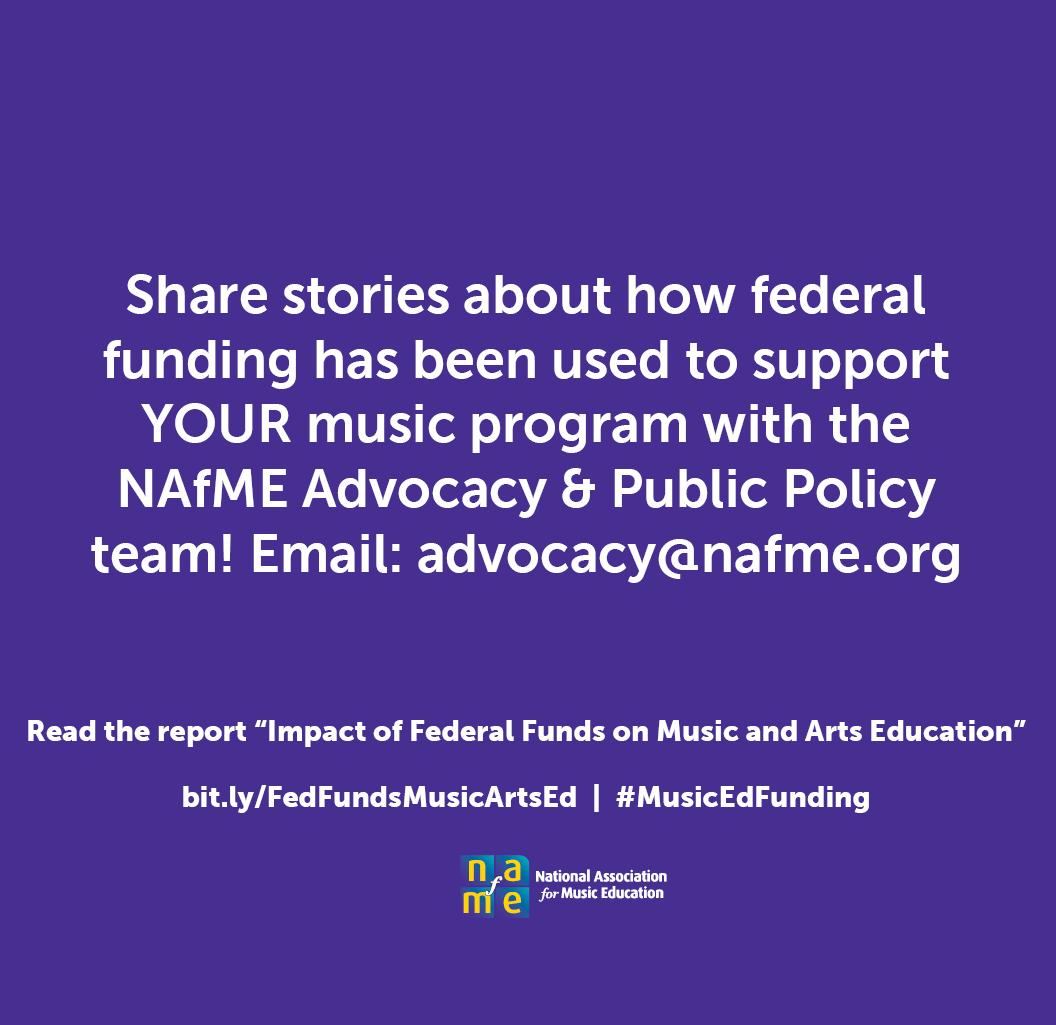
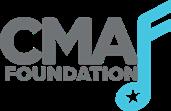

Download your brochure at bit.ly/MusicEduSEL Questions? Email advocacy@nafme.org
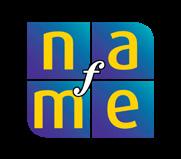
tomed to the unknown at their own pace, setting them up for successful exploration later on.
Acknowledging and celebrating each accomplishment, regardless of its size, is a powerful tool in fostering musical exploration. Just as a canoeist rejoices after overcoming a particular challenge on the water, students thrive when their efforts are recognized and praised. Positive reinforcement fosters a growth mindset, instilling in students the courage to embrace exploration, take chances, and persist in the face of difficulty.
Fear of failure often hinders students from exploring new musical concepts or genres. However, by promoting resilience, educators can help students reframe failure as a natural part of the learning process. Just as a canoeist learns from mistakes to become a more adept navigator, students learn to adapt and grow when faced with challenges in their musical endeavors. By normalizing mistakes as learning opportunities, educators empower students to persevere and take more significant leaps in their exploration of music.
In the stillness of Sebago Lake’s waters, I discovered that facing our fears and embracing the unknown can open doors to remarkable growth and understanding. Through solo canoeing, I not only conquered my fear of the open body of water but also gleaned invaluable insights that transformed my music pedagogy.
As I navigated the expansive lake, I realized that my initial fear mirrored my students’ trepidation when confronted with new musical concepts or instruments. Just as the vastness of Sebago Lake appeared over-
whelming, so too did the world of music seem vast and intimidating to my learners. Furthermore, the art of celebrating each accomplishment on Sebago Lake paralleled the importance of acknowledging and honoring my students’ achievements in their musical journeys. By recognizing their efforts, no matter how small, I instilled a sense of pride and motivation that encouraged them to persevere and explore new aspects of music.

Yes! I Get to Teach General Music
Every student enters our classroom with unique talents and experiences, and, as educators, we are responsible for maximizing every student’s potential. In secondary general music, we can reach students who may enjoy music but refrain from participating in our traditional large ensembles (band, choir, orchestra) for many different reasons. This session will provide music educators with ideas for creating and implementing secondary general music classes that can be culturally relevant and student-centered. Topics covered will include emerging approaches to music education and strategies for incorporating popular music, technology, and multicultural music. In addition, I will discuss the role of the educator in a student-centered classroom and share resources that will help navigate teaching secondary general music courses.
Individual and ensemble errors are a constant in any rehearsal setting. While the ability to detect errors is a skill we continue to work toward perfecting, a systematic approach can aid in your ability to decrease errors within your ensemble and increase your ability to detect mistakes. Through error prediction and prevention, time can be focused on concept mastery rather than individual errors. Error detection can be improved through attentive listening and a goal to target the error down to the specific measure, note, and performer.
Ultimately, the experience of canoeing on Sebago Lake taught me that fear is a natural part of the learning process. Just as I overcame my apprehension of the open water, students can learn to view their fears as stepping stones to growth. By fostering an atmosphere of encouragement and resilience, we can help those we serve to navigate their uncertainties, build the courage to try new instruments, experiment with various musical styles, and confidently express themselves. n
Join us for an exhilarating seminar on unleashing the magic of movement in elementary music education. Delve into the art of seamlessly integrating movement into every lesson to create unforgettable musical experiences. Experienced public school Dalcroze Eurhythmics Instructor Anthony Molinaro will be your guide, revealing the secrets to overcome challenges and transform your teaching approach. Gain practical strategies, innovative lesson ideas, and invaluable tools that will empower you to ignite your students’ passion through captivating movement activities. Attendees will learn how to build a culture of movement that will engage every child in the beauty of these expressive activities.
Learn more at: https://nafme.org/ professional-learning-events/event-calendar/
Just as a solo canoeist braves the open waters of Sebago Lake to overcome trepidation, music educators must equip themselves with strategies to help students embrace musical exploration despite their fears.
As a teacher helping young saxophone students, I have noticed that physical differences in elementary and middle school students can offer serious challenges to themselves and us as teachers. Students are at varied stages of physical development when they join the band. Some kids have yet to hit their growth spurt, and the challenges these children face are too often overlooked by teachers. Luckily, many of these challenges can now be easily remedied, and teachers need only to be able to recognize when they exist.
You never fly a plane or race a car without strapping in for safety and performance. The same is true of saxophones. One of the most common pain points that sax students face is neck strap discomfort on their smaller bodies. I’m sure every band director reading this can call to mind the image of a student hunching over or craning their neck to blow into their saxophone despite having their neck strap pulled all the way up to their throat. Instrument rental companies try to standardize their equipment, but they simply cannot account for the sheer range of student height at the elementary band level. The relatively easy fix is for teachers to keep neck straps of various lengths in inventory. The well-reputed Protec brand makes neck straps in a 22-inch “regular” size and a 20-inch “junior” size, both of which are readily available or orderable at your local music store. For extreme cases, keep some soprano saxophone and clarinet neck straps on hand for small children who still struggle with the 20-inch neck strap.

When a child first learns saxophone, any accidental nudge to a palm key will cause a rockin’ squawk that frustrates the student. This is common for kids with small hands. For a long
time, there was no fix for this problem other than turning the child away while their hands grew or forcing them to learn an instrument they are not passionate about.
We can all think of students who learned bad habits as compensation for not being able to reach their keys or, even more concerning, gave up on the instrument entirely. However, during my trip to the 2023 US Navy Band Saxophone Symposium, I attended a presentation by teacher and inventor Rulon Brown in which he unveiled his affordable and convenient solution: the RULON Alto Sax Palm Key Removal Kit. While the name may suggest some drastic modification to a student’s horn, the reality is far less severe. The kit includes all the tools a parent or teacher needs to safely remove the palm keys of an alto saxophone, securely store the removed keys until the student is ready to reincorporate them into their instrument, and non-abrasively seal the tone holes of the removed keys. To use the words of Rulon Brown himself:
When a small child starts [playing] saxophone, their hands can struggle to reach around bulky palm keys. But those palm keys aren’t played in the first year of study. Use the RULON Palm Key Removal Kit to safely remove saxo phone palm keys so small hands can make big sounds. This makes any alto sax easier to hold and play while your student grows.
Rulon Brown makes some excellent points regarding the palm keys on the saxophone. Most students will not learn the high palm key notes until late middle school or sometimes even high school. Removing those palm keys in the early stage of learn-


ing allows the student to comfortably and confidently learn the basic technique of the instrument without having to contort their small hands around an unnecessary obstacle. In addition to the Palm Key Removal Kit, Rulon Brown includes a series of helpful instructional videos for beginning students free of charge with the kit. These videos are pedagogically excellent and can help a beginning student in their own private practice and development. For more information regarding the RULON Alto Sax Palm Key Removal Kit, visit www. KeyLeaves.com/SmallHands
Off The Hook!
e have discussed in depth palm keys being a barrier to left hands. But let’s not forget about the right hand! Students of all ages can feel trapped under the traditional saxophone thumb hook. The thumb hook is also a culprit for poor posture from beginner to professional. Many students form the bad habit of holding the horn’s weight on their right thumb instead of set-
ting their neck strap at a proper height to hold the sax. Rulon Brown created a simple and elegant solution to this problem: remove the hook and replace it with an adjustable platform for all hand sizes! The RULON ergonomic saxophone rest (included in the Alto Sax Palm Key Removal Kit discussed previously) replaces the traditional right thumb hook. The flat surface rest not only forces the student to have their neck strap position at a healthy height, but the adjustability of the RULON rest (shown in the photo above) allows students of every hand size to find a comfortable and relaxed holding position on the saxophone. This makes clearing the side key fingerings and reaching down to the pinky keys far more accessible and faster for students. This is a benefit to kids and adults with larger hands. Since January, I have used the RULON sax rest on both my alto and tenor saxophones and noticed significantly less tension and stress during my playing sessions.
Students should be allowed to sit comfortably in class. Don’t yell at me just yet, fellow directors.
Band Students should most certainly be using healthy posture in their chairs, but we must let go of the rigid marching band-centered thinking about how students sit. Most young players, including myself in the fourth grade, feel more comfortable resting the alto to the side of their body instead of between the legs. Their small torsos aren’t tall enough yet to sit center in a healthy way. Doing so at this young age cramps their right arm and wrist into unhealthy positions and can develop horrible embouchure overcorrections.
As long as a child is sitting tall in their chair, placing both feet flat on the floor, correctly using their neck strap to bear the weight of the saxophone, and setting the mouthpiece and neck to meet their face, this should be perfectly fine. Some students will grow physically and progress toward tenor and baritone saxophone later in school, and holding their horns to the side will be necessary! As long as your sax students use healthy side posture, they are on their way to a long, healthy saxophone body position.
Finding and keeping music students is a worthy concern for any teacher. When a child says they want to play sax—that is the golden moment! They are open, curious, willing to try, and asking for help. Let’s get those kids started while interest is bright hot. And let’s keep them playing healthy on their music journey.
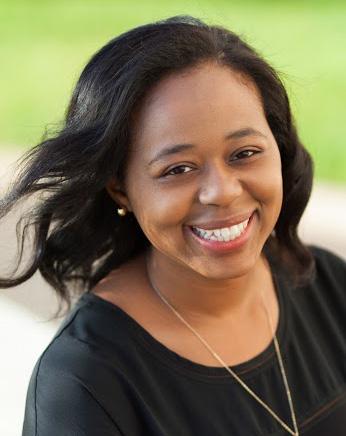
Imagine more children joining our bands, having already played their sax, eager to make music with friends.
Imagine more of your sax students reaching their notes with ease and learning fast, comfortably, and satisfied as they grow.

The saxophone is for everyone, regardless of where a student is in their physical development. The aids to saxophone posture and accessibility are fairly simple, but they require music educators to know how their students are struggling. We must be willing to work with students and their parents to use the tools available. I hope some of these tips will be helpful, and we can all work toward greater access, comfort, and joy for our saxophone students. n
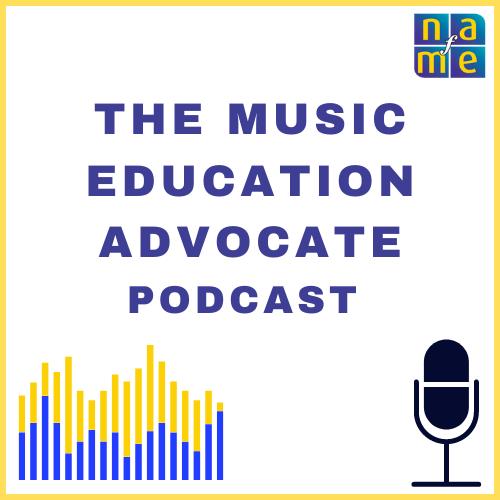
They are open, curious, willing to try, and asking for help.
On the NAfME Grassroots Action Center page, you can:
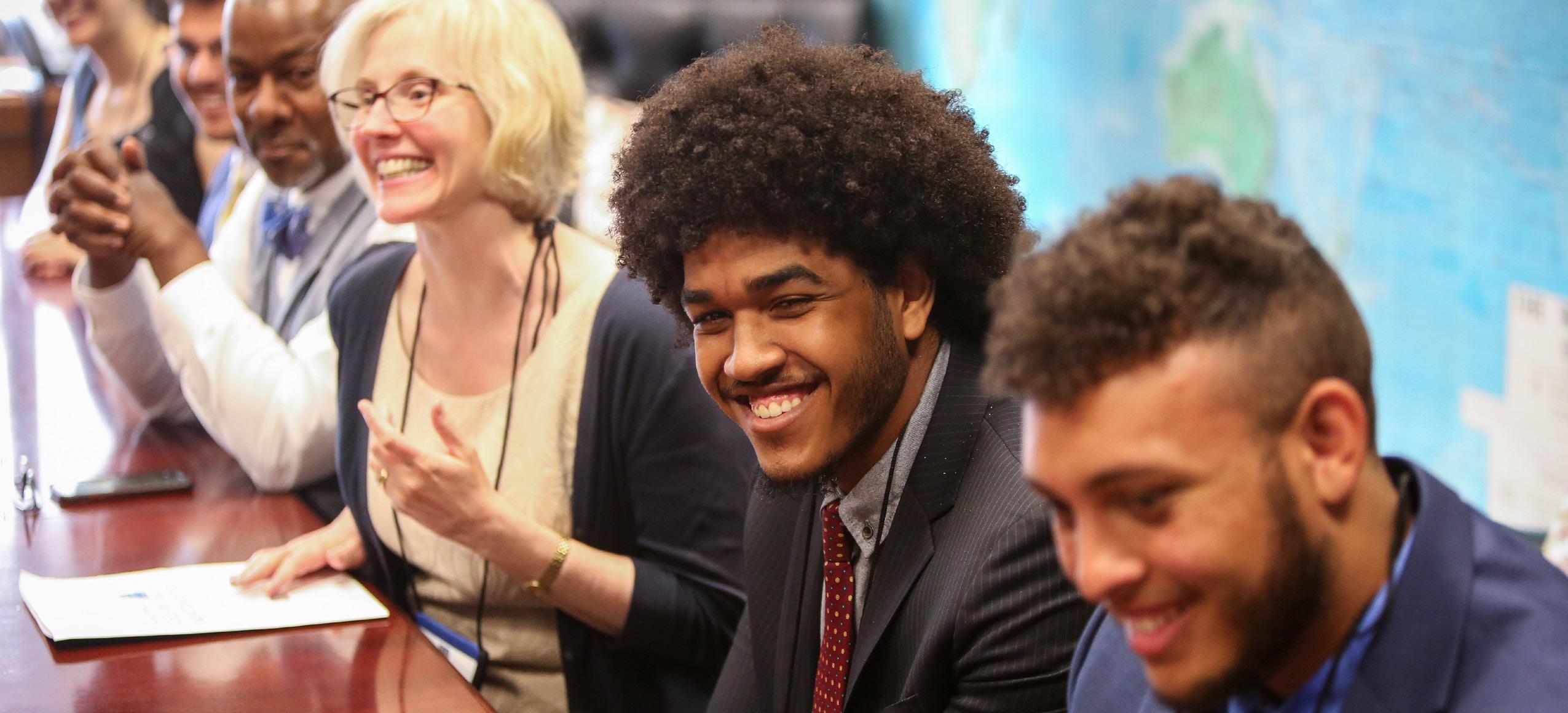
• Support music education in federal education policy
• Get involved with the legislative process
• Engage your members of Congress
NAfME Public Policy staff regularly provide updates to the education funding process and legislation that directly impacts music education funding and access. On this page you can find ready-to-send letters that you can customize and submit to your members of Congress to take action on issues that affect music education.
Go to bit.ly/NAfMEgrassroots (case-sensitive) and take action today.